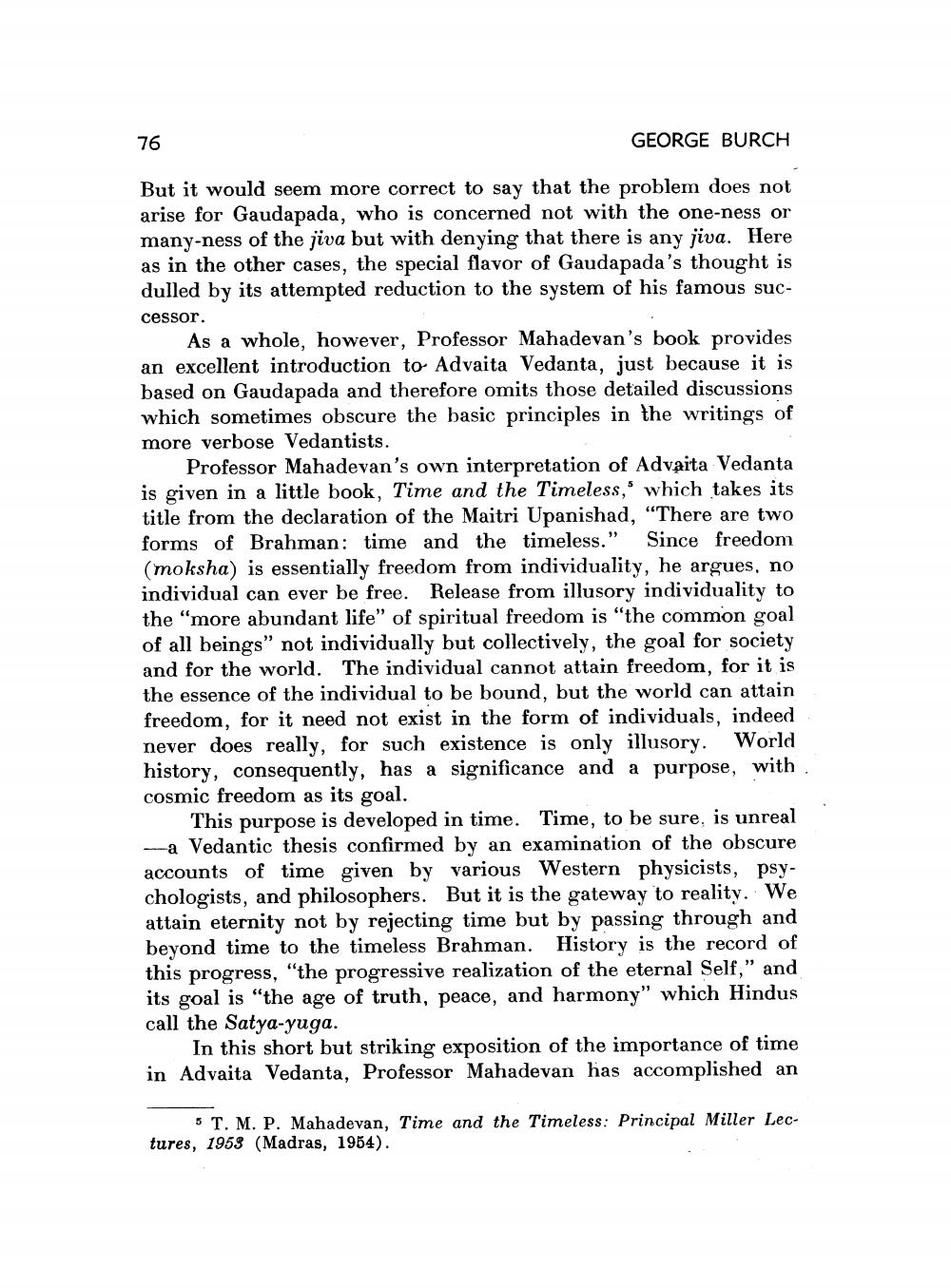Book Title: Recent Vedanta Literature Author(s): George Burch Publisher: George Burch View full book textPage 9
________________ 76 GEORGE BURCH But it would seem more correct to say that the problem does not arise for Gaudapada, who is concerned not with the one-ness or many-ness of the jiva but with denying that there is any jiva. Here as in the other cases, the special flavor of Gaudapada's thought is dulled by its attempted reduction to the system of his famous successor. As a whole, however, Professor Mahadevan's book provides an excellent introduction to Advaita Vedanta, just because it is based on Gaudapada and therefore omits those detailed discussions which sometimes obscure the basic principles in the writings of more verbose Vedantists. Professor Mahadevan's own interpretation of Advaita Vedanta is given in a little book, Time and the Timeless, which takes its title from the declaration of the Maitri Upanishad, "There are two forms of Brahman: time and the timeless." Since freedom (moksha) is essentially freedom from individuality, he argues, no individual can ever be free. Release from illusory individuality to the "more abundant life" of spiritual freedom is "the common goal of all beings" not individually but collectively, the goal for society and for the world. The individual cannot attain freedom, for it is the essence of the individual to be bound, but the world can attain freedom, for it need not exist in the form of individuals, indeed never does really, for such existence is only illusory. World history, consequently, has a significance and a purpose, with cosmic freedom as its goal. This purpose is developed in time. Time, to be sure, is unreal --a Vedantic thesis confirmed by an examination of the obscure accounts of time given by various Western physicists, psychologists, and philosophers. But it is the gateway to reality. We attain eternity not by rejecting time but by passing through and beyond time to the timeless Brahman. History is the record of this progress, "the progressive realization of the eternal Self," and its goal is "the age of truth, peace, and harmony" which Hindus call the Satya-yuga. In this short but striking exposition of the importance of time in Advaita Vedanta, Professor Mahadevan has accomplished an 5 T. M. P. Mahadevan, Time and the Timeless: Principal Miller Lectures, 1953 (Madras, 1954).Page Navigation
1 ... 7 8 9 10 11 12 13 14 15 16 17 18 19 20 21 22 23 24 25 26 27 28 29
